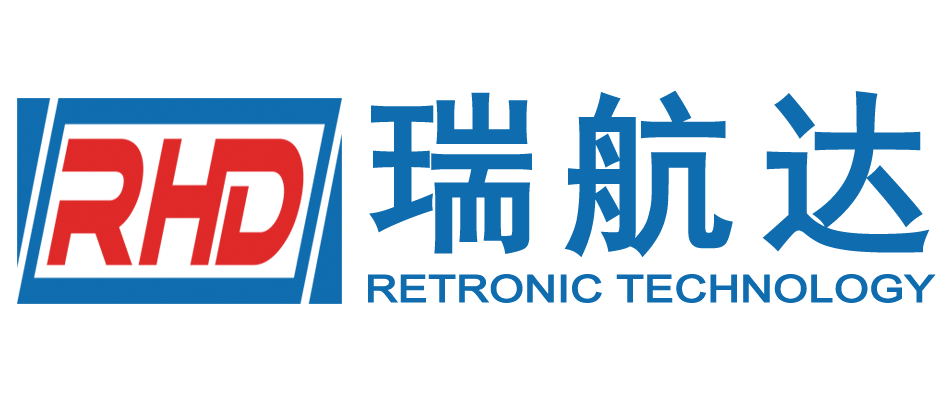
application area
Intelligent Security
Intelligent Security

The security chip market was a highly concentrated market, but with Huawei's chip shortage not expected to be resolved in the short term, it gradually lost market share, which gave many chip manufacturers an opportunity, including both existing security chip manufacturers and those that had entered from related fields, as well as startups. As a result, the security chip market has once again become a battleground for many players, with fierce competition. Huawei is expected to gradually lose its 70% market share in IPC/NVR SoC. Video surveillance systems are divided into analog surveillance systems and network surveillance systems, and ISP and DVR SoC are the front-end and back-end of the analog surveillance system, while IPC SoC and NVR SoC are the front-end and back-end of the network surveillance system. These four types of chips are currently the most closely watched direction in the security industry. Data shows that Huawei has a 70% market share in IPC SoC and NVR SoC for video surveillance. For players entering the market, this is definitely a delicious big cake. First, the market space is huge. According to estimates by Citic Securities, the market space for IPC SOC is between 50 and 60 billion yuan. The market space for DVR/NVR SOC chips at the back end is between 20 and 30 billion yuan. Second, this market is a mature market that has been developed by companies such as Huawei, and new entrants essentially find direction and will not take many detours, making it easier to succeed. Third, because the market was previously very concentrated, other players who have gradually entered the market have competition, but each has an opportunity. Front-end IPC chips are becoming increasingly popular, and many chip manufacturers are rushing to enter the market. Huawei's IPC chip offerings are quite comprehensive, including the Hi3516DV300, Hi3519AV100, Hi3559A/CV100, among others, which cover the mid-to-high-end market. In addition to Huawei, IPC chip manufacturers include TI, Ambarella, Sigmastar, Novatek, Unisoc, Rockchip, RK3568, Allwinner, Guokemi, Yizhi, Rockchip RK3568, RK3568, Allwinner, Guokemi, Yizhi, and others, with more than 10 manufacturers in total.

Fohuanwei started out with ISP chips, then launched IPC SoC chips. After Huawei's chip shortage, it seized the market opportunity and is estimated to have a market share of 5%-10% for its IPC SoC chips. Fohuanwei says it is focusing on building its IPC chip product line and has launched products that support wireless low-power to 2K high-performance SoC. FH8830, its latest flagship product, supports intelligent functions such as face recognition and motion detection, and is popular in the market. In addition, the company's existing network camera SoC chip products have achieved mass production on a more advanced 22nm process node, and has a complete SoC chip development platform on this process node. The company's main security surveillance network camera chips all have light intelligent analysis functions, including face detection, human figure detection, motion detection, and target tracking. Guokewei's intelligent security SoC chips mainly include the GK71 series and GK72 series, which are low-power, low-bit rate, high-definition, high-integration SoC chips developed for high-definition network cameras. They cover the H.264 and H.265 encoding standards. In 2020, Guokewei's intelligent video surveillance series chip products achieved sales revenue of 12,425.83 million yuan, up 49.84% from 2019, accounting for 17.00% of the company's annual revenue. Based on the intelligent security chip series GK71, GK72, Beijing Junzheng has been deepening its subdivision market in the home consumer camera sector, while continuing to expand in the operator market, providing customized camera solutions for customers. Beijing Junzheng began research and development of smart video market products in 2014, and its video chip research and development was successful in late 2015 and began sales in 2016. Beijing Junzheng has released two video chips, T10 and T20, focusing on providing intelligent visual perception and analysis technology. In the second half of 2020, Beijing Junzheng completed the tape-out of its next-generation IPC chip, which can meet the increasing demand for AI processing in the smart video field and has a good cost-performance advantage. In the first quarter of 2021, Beijing Junzheng's intelligent video chip achieved revenue of 170 million yuan, up 449% year-on-year, with customers including Hualai, Zumi, 360, and Hikvision Yingshi. EEI released SV826 and SV823 mainly for video encoding and decoding AI cameras, using intelligent H.265+ encoding technology to support recording of up to 4K ultra-high definition videos; integrating professional-grade ISP and equipped with EEI's second-generation self-developed NPU, with 1.5T/0.8T computing power, it can efficiently support face recognition, detection, human shape recognition, license plate recognition, car model recognition, video structuring, and intelligent behavior analysis in various smart application scenarios.

Currently, the market for NVR SoC chips at the back end is not as crowded as the market for front-end IPC chips. For chip vendors with a head start, it is a good market opportunity. Capital is flowing in, and security chip companies are receiving strong support. Although there are many listed companies focusing on security chip development, such as Fohuanwei, Beijing Junzheng, Guokewei, and Ruixinwei, there are also startups entering the market and receiving considerable funding, indicating that capital is also very optimistic about the huge market space of video surveillance. Originally, Hisilicon was dominant, making it difficult for new entrants to survive, but now these companies have the opportunity to survive and develop. Established in May 2019, Aixin Technology completed its Pre-A and A rounds of financing in April this year, raising a total of hundreds of millions of yuan. In August, Aixin Technology announced the completion of its A+ round of financing, raising hundreds of millions of yuan again. In addition, Jian Guang Asset, Zhi Lu Asset, Investor Lingsheng's investor Beijing Jianguang Asset Management Co., Ltd. Executive Vice President Cheng Guoxiang said last year that Lingsheng may launch a new round of financing to ensure that the company has more competitive strength to promote more research and development, and increase research and development investment. For listed companies, they are also expanding their investment in security chips through fundraising and other means. I will not elaborate on this in detail. In summary, from the speed of financing and the scale of funds, capital is supporting the emergence of outstanding enterprises in the surveillance and monitoring track. After all, the chip manufacturers are now becoming more dispersed, and are in a stage of fierce competition. However, after the window period, the market landscape will gradually stabilize, and at that time, we will see significant changes in the market share of players in the surveillance and monitoring front-end and back-end chip industries.
